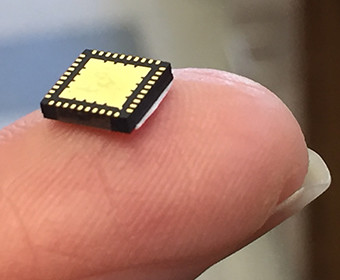Tiny chip to extend battery life

Researchers at the University of Texas at San Antonio (UTSA) have received a $50,000 grant from the National Science Foundation to commercialise a chip that can make lower power electronics, like mobile phones, work more efficiently. With a size of no more than a pin’s head, the technology is being developed by Professor Ruyan Guo alongside researcher Shuza Binzaid and graduate student Avadhood Herlekar.
Currently, mobile phone users in desperate need of a charge may put their device on low-power mode and reduce its regular functions in order to extend battery life. The use of the chip means such measures are no longer necessary, keeping a phone working at top functionality with much less power. It also facilitates the use of smaller batteries, since the object itself is so small.
“This chip can be used with anything that runs on a battery,” said Binzaid. “It manages power so that the device can last longer.”
The chip also tackles the issue of devices heating up after several minutes of use, which is a result of a lot of power being used. “With our device there is less power consumption,” noted Guo, “which means the heat will be much less of an issue.”
Guo and Binzaid are currently working with marketplace experts in order to determine which industry their chip is best suited to, since it could be used in several different applications. Beyond lower power devices such as phones, the chip could be used in fire sensors, fitness monitors and even medical apparatuses.
“We hope to make a significant leap forward in defibrillators and pacemakers,” said Guo. “Invasive surgeries to replace medical devices that are running out of power could become much less frequent.”
Four-terminal tandem organic solar cell achieves 16.94% PCE
Researchers have fabricated a new four-terminal organic solar cell with a tandem configuration...
Scientists unveil novel material for magnesium batteries
Researchers have developed a cathode material for rechargeable magnesium batteries that could...
Researchers develop high-efficiency DC power converter
Researchers have developed a direct current voltage boost converter that could contribute to the...










